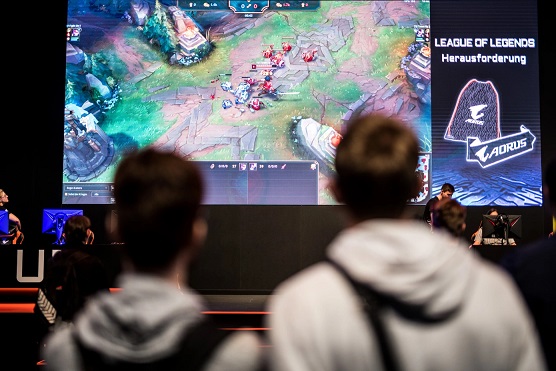
Last week, the video game giant Riot Games revealed that hackers had compromised its “development environment” — where the company stores its source code — with a social engineering attack.
While the company reassured its users that “there is no indication that player data or personal information was obtained,” the hack could still be damaging, as hackers got their hands on the source code for Riot’s popular games League of Legends and Teamfight Tactics, as well as the source code for the company’s legacy anticheat system.
The theft of the anticheat’s source code — even an old system — could help hackers develop better and less-detectable cheats, according to industry experts who spoke to TechCrunch.
“From Riot’s perspective it’s bad (beyond just embarrassing) because it makes it easier for cheat developers to understand the game and therefore easier to develop new cheats; it also makes it easier for third-party league servers/clients to get made,” Paul Chamberlain, who led the anti-cheat team that worked on Valorant, told TechCrunch.
Chamberlain said that the legacy anticheat hasn’t been part of League of Legends for five years, but given that developing cheats “is as much (perhaps more) about the game itself than the anticheat system, having access to the game source code means you don’t have to reverse engineer the released binaries (which are often also obfuscated or encrypted) and gives cheat developers better access to the intent of the game code through comments and variable/function/class names.”
“Access to an obsolete anticheat system is mostly a curiosity but it could give some insight into how the anticheat developers think and what the company prioritizes in terms of what needs protection,” Chamberlain explained.
Riot itself admitted this risk. In a tweet on Tuesday, the company said that “any exposure of source code can increase the likelihood of new cheats emerging,” and that its developers are working to assess the impact of the theft and “be prepared to deploy fixes as quickly as possible if needed.”
When reached by email, Riot spokesperson Joe Hixson declined to answer TechCrunch’s questions beyond the company’s tweets.
An industry insider with knowledge of anticheat systems (who asked to remain anonymous, as he was not authorized to speak to the press) agreed that the theft of the anticheat system’s source code has the potential to hurt Riot and its players.
“They are in trouble if the anticheat code gets published,” he said. “If the anticheat source code is disclosed, cheat developers will have an easy time bypassing everything.”
The insider explained that Riot’s old anticheat system is probably still being used to prevent a number of cheats and working to detect and block them. The theft of the system may compromise Riot’s ability to identify the hardware used by cheaters — game companies identify and fingerprint the hardware used by cheaters to ban them — as well as the detection systems used to find cheat developers, and may even require a rewrite of the anticheat system.
Moreover, the insider said, the source code could even be used by malware developers. “It will be easier to find vulnerabilities in the [game’s] driver that could be exploited by malware,” the insider said.
Motherboard reported on Tuesday that the hackers are demanding Riot Games pay a ransom of $10 million to not publish the stolen code.
“We have obtained your valuable data, including the precious anti-cheat source code and the entire game code for League of Legends and its tools, as well as Packman, your usermode anti-cheat. We understand the significance of these artifacts and the impact their release to the public would have on your major titles, Valorant and League of Legends. In light of this, we are making a small request for an exchange of $10,000,000,” read the ransom note obtained by Motherboard.
https://techcrunch.com/
Apple on Monday released a new version of the iPhone and iPad’s operating systems to fix a vulnerability that hackers were exploiting in the wild, meaning they were taking advantage of it to hack Apple devices. On the security update page, Apple wrote that it “is aware of a report that this issue may have […]
This holiday season, consider giving the gift of security with an ad blocker. That’s the takeaway message from an unlikely source — the FBI — which this week issued an alert warning that cybercriminals are using online ads in search results with the ultimate goal of stealing or extorting money from victims. In a pre-holiday […]
Twitter finally broke its silence over the first security incident of the Musk era: an alleged data breach that exposed the contact information of millions of users In late December, a poster on a popular cybercrime forum claimed to have scraped the email addresses and phone numbers of 400 million Twitter users by way of a zero-day security […]
Leave a Reply